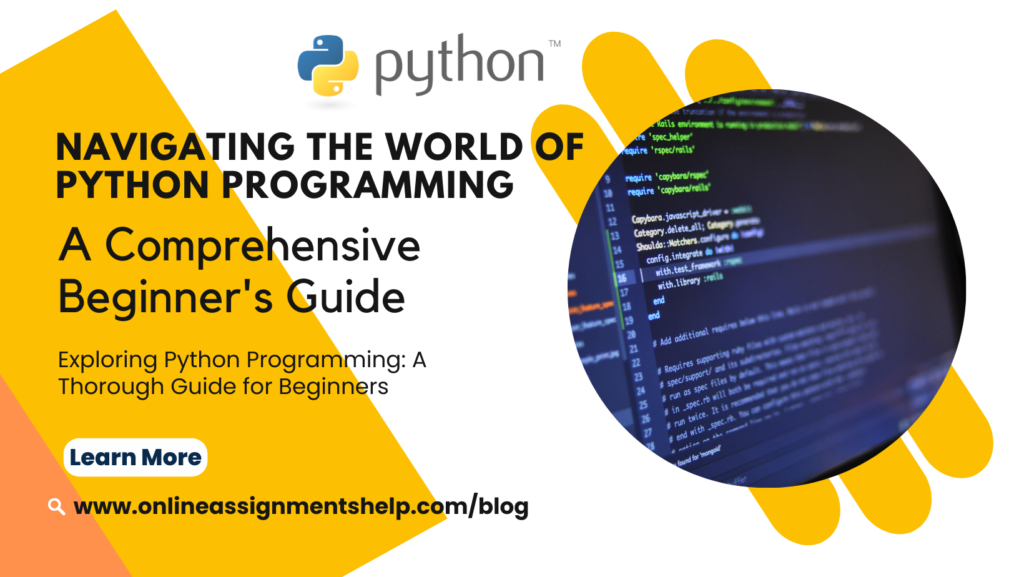Navigating the World of Python Programming: A Comprehensive Beginner’s Guide
Python is a readability-focused, high-level, interpreted, general-purpose dynamic programming language. With its unmistakable and straightforward grammar, Python has turned into a well known decision for novices to begin their coding process. Compared to other programming languages like C++ or Java, it allows developers to write programs with fewer lines, making it an excellent choice for beginners.
Why Pick Python?
There are a few justifications for why Python is an alluring choice for fledglings. First, Python is free to download and use because it is open-source. Additionally, it has a vibrant community to which you can contribute and ask for assistance. Additionally, Python can be used for a wide range of tasks, such as web development, data analysis, artificial intelligence, machine learning, and more.

Setting up Your Python Environment
To begin programming in Python, you really want to introduce it on your PC. There are multiple ways of doing this, yet a famous decision is downloading the most recent rendition from the authority Python site. Once introduced, you’ll likewise require a content tool or a Coordinated Improvement Climate (IDE) where you’ll compose your code. PyCharm, Jupyter Notebooks, and Visual Studio Code are a few of the most well-liked options.
Learning the Basics
Start your excursion with Python by finding out about the rudiments. Begin by understanding how to record pieces of feedback, make factors, and work with information types like strings, whole numbers, and floats. Also, learn about control flow by using loops and if statements.
Python Libraries and Systems
Something that make Python incredibly strong is its immense assortment of libraries and structures. Data manipulation and analysis are made easier with libraries like NumPy and Pandas. Matplotlib and Seaborn are perfect for information perception. For AI assignments, Scikit-learn and TensorFlow are go-to decisions..
Building Your First Python Project
After you’ve gotten a handle on the essentials, now is the right time to incorporate your insight. Start by working on straightforward projects like a text-based game or calculator. This won’t just test your seeing yet additionally increment your trust in coding.
Practices in Python Coding
Always keep in mind that writing clean and effective code is just as important as making a program work. Learn about PEP 8, or Python’s coding conventions. These rules make it easier for others to understand your code and help keep it consistent.
Consider joining Python’s vibrant community to keep up with the latest developments and enhance your learning. Attend Python-related events, contribute to open-source projects, and participate in forums. Additionally, websites like Stack Overflow and GitHub are excellent resources for learning from the experiences of other Python developers.
If you have the right mindset, the right resources, and a lot of practice, you can quickly become an expert in Python programming and navigate the world of programming. Keep in mind that every expert was once a novice. So, get started learning Python today and let your love of coding lead you through the fascinating Python programming world.



